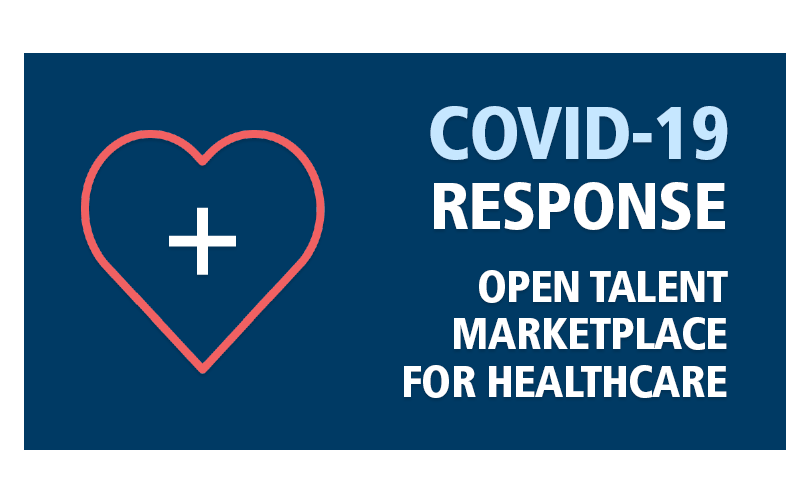
Self-Care for Clinicians: Ways to Be Kind to Yourself
As the country faces the worst pandemic in more than a century, healthcare professionals remain on the front lines, providing care to a flood of seriously ill patients, which can at times be physically and emotionally draining.
Self-care for healthcare professionals will, ultimately, help them survive this critical time.
The coronavirus is testing clinicians’ resolve. Lack of personal protective equipment, ventilators and other supplies is making their jobs far more difficult, yet they carry on. Staff, travelers and per diem workers alike are working long hours, and because of it many may be limiting a focus on their own needs.
Why is self-care so critical?
Jane Foote EdD, MSN, RN, CNE, treasurer of the American Holistic Nurses Association, recommended clinicians practice self-care by establishing and maintaining routines that help offload cortisol, both at work and after one’s shift.
Adding to that suggestion, lauded “Inspiration Nurse,” Donna Cardillo, RN, MA, CSP, FAAN, an accomplished speaker and author of Falling Together: How to Find Balance, Joy and Meaningful Change When Your life Seems to be Falling Apart, offers suggestions for healthcare professionals and others during difficult times.
“We should not push ourselves to the breaking point,” cautions Cardillo. “We are giving excessive output right now, beyond what is normal, physically, emotionally and spiritually. When we have excessive output we have to practice extreme self-care.”
So what can you do? Consider these recommendations from your peers and experts to stay at your best:
1. Talk it out E. Alison Holman, PhD, FNP, an associate professor at UC, Irvine, and a member of the American Psychological Association, points out that the uncertainty of the current health situation can create anxiety. Holman suggests acknowledging one’s feelings and resist the temptation to suppress it. Talking it out with a friend or family member, or mental health professional may help. Tip: AMN Healthcare travelers have access to an Employee Assistance Program. Check your benefits information or talk to your recruiter for details.
2. Focus on what’s within one’s control “Remember there is a lot we cannot control, because of the situation,” Holman says. “I would encourage people to stay focused on what they can control in their lives.” For instance, healthcare professionals can control what they eat or when they take a break.
3. Practice controlled breathing Holman recommends practicing “4-7-8 breathing” to decrease the stress response. That requires sitting up straight, breathing in through the nose to a count of four, holding for a count of seven and then exhaling through the mouth for a count of eight. Then repeat three times. This relaxing breathing can be done at work, or during a brief break.
4. Break Away Cardillo notes that breaking away, whether it’s for a few minutes or longer, such as a day or more off helps one to disengage. Even a few moments of fresh air, listening to nature and changing your environment helps to gives the mind a rest.
5. Foster a healthy team Teamwork, helping each other and covering the floor for one another so co-workers can take breaks will help reduce stress, Foote adds. “I invite nurses to lean in and think holistically about how to ask for help, because it’s a time we all need to work together,” she says. Tip: Do something for someone else, and good will come back to the initial giver, Holman says.
6. Remain positive “Thinking affects every cell in your body,” says Foote. “Limit the negatives you are exposed to.” That might include turning off the news for a while. Cindy Cain, DNP, RN, CNS, CCRN-K, clinical practice specialist with the American Association of Critical-Care Nurses adds, “Something as simple as thanking a co-worker and recognizing their hard work can help you remain positive and stay mentally healthy.”

7. Healthy eating “Healthy food is what makes your mind sharp, and your body functioning well,” Holman says, adding that snacking on junk food, candy or sweet treats can lead to mood swings. Holman also encouraged staying hydrated, drinking water and eating vegetables.
8. Get some sleep It’s important to get rest between shifts, Holman suggests. Sleep helps your body and mind stay healthy. Also, errors can happen when fatigued. Remember that you need to take care of yourself so you can take care of others. Tip: Consider using the “4-7-8 breathing method” can help you relax so you can sleep.
9. Exercise Exercise offers opportunities to improve mood, reduce stress and enhance relaxation. Foote recommends taking solitary walks in nature, if possible; even a 15-minute walk will help. Tip: Check out Headspace online. A few recordings, including a short one on walking at home can help you relax and get your exercise in. Headspace also provides free access through 2020 for healthcare professionals to their expanded library of meditation, sleep and movement exercises.
10. Plan something to look forward to Cardillo also recommends setting a goal for when the world returns to normal. That may be a vacation or a weekend at the beach “When we have excessive output, we need to go below the midline,” Cardillo said. “We have to rest before coming back.”
Looking for ways to help? View nursing crisis response healthcare jobs


